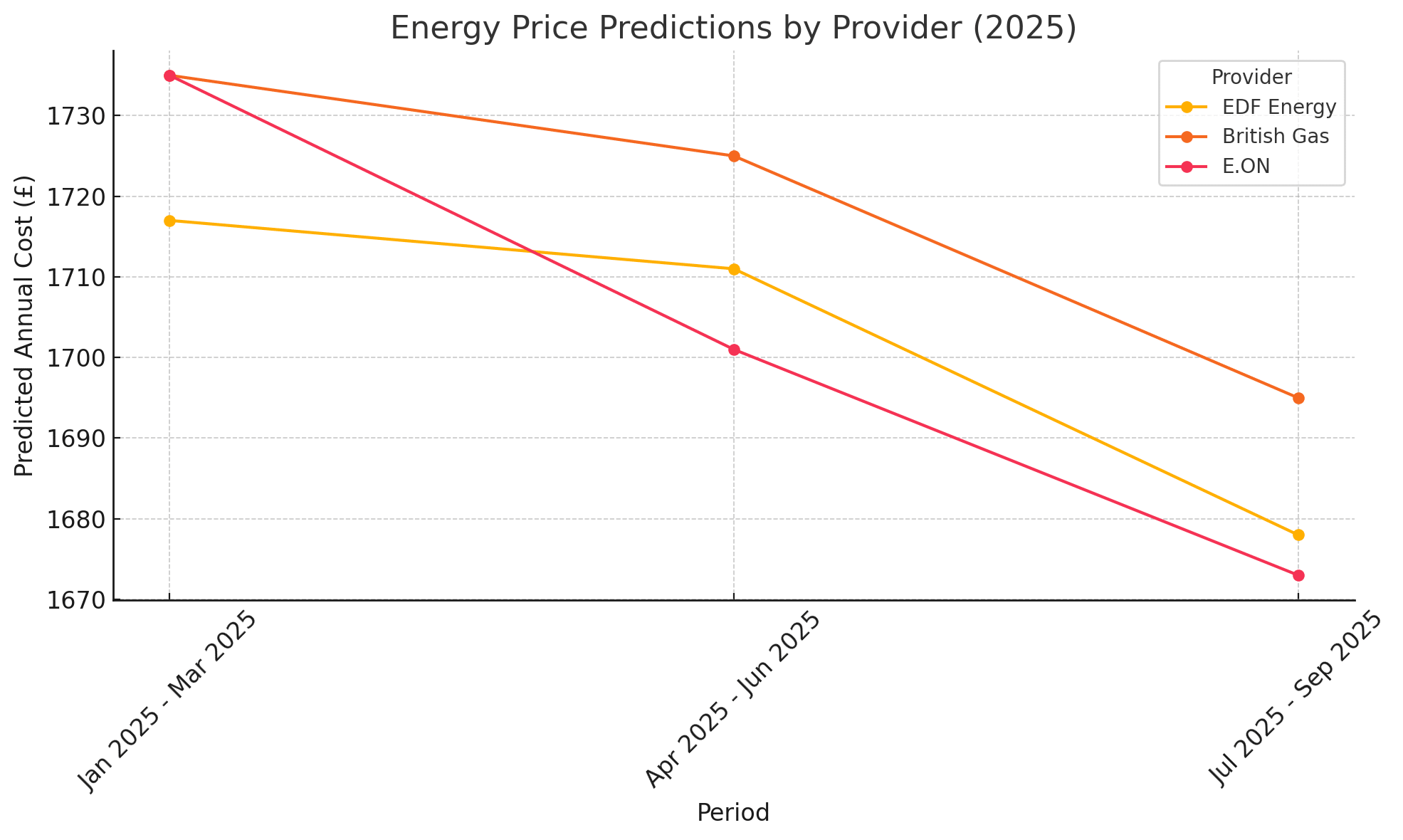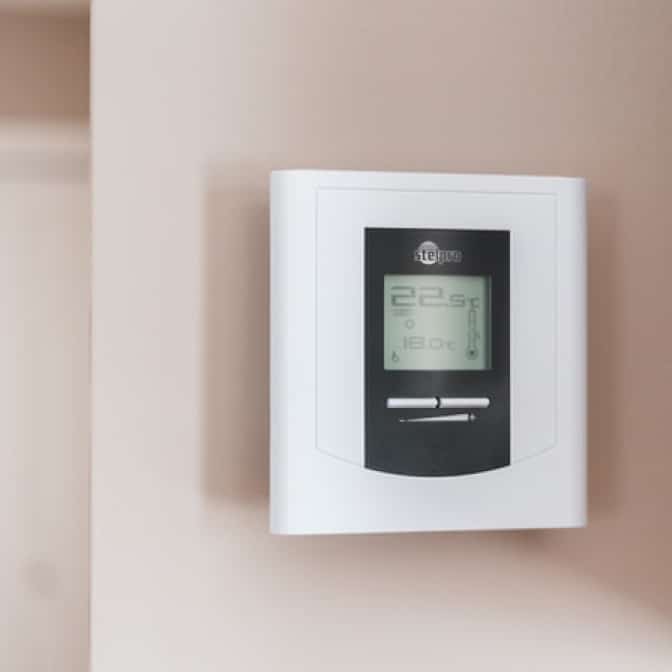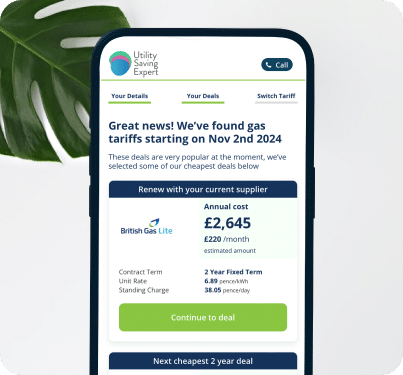
How To Compare Energy Deals And Switch Energy Suppliers
Follow these four simple steps to compare energy prices against our trusted panel of UK energy suppliers:
Enter your home postcode details. If you need assistance, call our energy experts on 01242 32 31 31.
We’ll provide you with a list of domestic energy deals that fit your needs and budget.
Compare the different energy contracts and choose the one best suited to you. Your new supplier will handle the switch on your behalf.
Your switch will be complete within four to six weeks. Sit back and enjoy the savings on your next home energy bill.
What Makes Our Energy Price Comparison Tool Stand Out?
Utility Saving Expert’s comparison tool doesn’t just provide a list of energy suppliers; it gives you a clear breakdown of each offer, including:
Tariff type
Duration of the Contract
Extra perks or features
This detailed information helps you pick the best energy supplier for your household gas and electricity, considering factors like energy usage, budget, and sustainability goals.
We know energy prices change. That’s why our comparison tool tracks the latest prices on the market so you can make a more informed decision.

Will UK Energy Prices Change Soon?
In the UK, the energy price cap (EPC) changes every three months and, at the time of writing (November 2024), has already increased by 10% from 1 October 2024. This takes a typical annual household energy bill to £1,717.
While Cornwall Insights predicts a slight drop in energy prices to £1,697 annually between January and March 2025, it’s worth noting that these are not recent predictions. Other energy experts predict:

How Does The Energy Price Cap Affect Your Energy Bills?
Most of UK homes’ gas and electricity are dictated by Ofgem’s energy price cap. In fact, as of 2024, roughly 28 million homes were affected by the EPC.
The EPC is a limit set by the government on how much an energy supplier can charge their customers for each unit of energy and a standing charge for standard variable tariffs. This means prices can rise or fall depending on [wholesale energy prices].
You are covered by the EPC if you pay for gas and electricity via:
- Standard credit (payment made when you get your electricity and gas bill)
- Direct debit
- Prepayment meter
- Economy 7 (E7) meter
From 1 October 2024 to 31 December 2024, the price cap is set at:
- £1,717 for an average dual-fuel household paying by direct debit.
- £1,669 for those with a prepayment meter.
- £1,829 for those who pay on receipt of their bill.
However, the price cap varies depending on your location in the United Kingdom.
Note: The energy price cap does not apply to business energy.
Current Gas And Electricity Prices Per UK Region: 2024
Here are the latest price cap energy tariffs based on different UK regions:
| Region | Electricity (p/kWh) | Gas (p/kWh) |
|---|---|---|
| North West | 23.68 | 6.16 |
| Yorkshire | 22.46 | 6.21 |
| North Scotland | 23.72 | 6.16 |
| Southern | 23.39 | 6.32 |
| South Scotland | 22.79 | 6.16 |
| North Wales & Mersey | 24.05 | 6.21 |
| London | 24.24 | 6.31 |
| South East | 23.91 | 6.17 |
| Midlands | 22.74 | 6.20 |
| Great Britain Average | 23.28 | 6.24 |
Ofgem data updated November 2024. Pricing for gas and electricity in pence per kWh, paid via direct debit.
Note: The energy price cap does not apply to households in Northern Ireland.
Who is the cheapest energy supplier in the UK?
The cheapest gas and electricity supplier can differ for everyone as it depends on factors like consumption, your current deal, and your location. Use Utility Saving Expert’s 100% free online comparison tool to compare energy prices from multiple UK energy suppliers.
What Is The Average Gas And Electricity Energy Bill In The UK?
According to [British Gas] data, here’s a list of the average gas and electricity energy bills per house size in the UK:
Direct debit customers
| House Size | Average Annual Consumption | Average Annual Cost (£) | Average Monthly Cost (£) |
|---|---|---|---|
| 1-bed house | Gas: 7,500 kWh Electricity: 1,800 kWh | 1,333.96 | 106.52 |
| 3-bed house | Gas: 11,500 kWh Electricity: 2,700 kWh | 1,828.68 | 130.50 |
| 5-bed house | Gas: 17,000 kWh Electricity: 4,100 kWh | 2,550.84 | 212.57 |
Pay-on-receipt customers
| House Size | Average Annual Consumption | Average Annual Cost (£) | Average Monthly Cost (£) |
|---|---|---|---|
| 1-bed house | Gas: 7,500 kWh Electricity: 1,800 kWh | 1,278.25 | 111.16 |
| 3-bed house | Gas: 11,500 kWh Electricity: 2,700 kWh | 1,797.31 | 149.77 |
| 5-bed house | Gas: 17,000 kWh Electricity: 4,100 kWh | 2,452.25 | 204.36 |
Which Energy Tariff Is Best For You?
Dual fuel tariff
A dual fuel tariff means you will get both your gas and electricity from one supplier rather than having separate energy suppliers for each utility. The main benefits of a dual fuel energy deal are that it’s less hassle, and you’ll have one point of contact for your energy supply.
Fixed-rate tariff
If you like to be certain about how much you’ll spend on gas and electricity each month, a fixed-rate tariff could be the energy deal for you. A fixed-rate or fixed-price energy tariff allows you to lock in a set price at the start of your contract, so you will pay the same price per kWh of energy for the entire duration of the contract (which is usually between 12 and 24 months).
Standard variable tariff
A standard variable tariff (SVT) is a default plan offered by your energy supplier. Once your current contract ends, you’ll automatically be switched to your supplier’s standard variable tariff.
In the past, SVTs were often the most expensive option. However, due to the government’s energy price cap, this isn’t always the case. The price cap sets a limit on the maximum amount a supplier can charge per unit of energy, which helps protect SVT consumers.
Green energy tariff
Green energy tariffs use [renewable energy] such as [solar], wind, and hydro, making your home’s energy consumption more eco-savvy. However, they’re not always the cheapest. You can compare price points for green energy using the comparison tool to see how much it would cost your household to go green.
Note: When selecting a green energy tariff, it’s worth looking out for the Ofgem Green Energy Certification, which ensures energy suppliers are compliant with sustainable energy regulations.
Prepayment tariff
Prepayment tariffs mean you have a prepayment meter at home that’s topped up with credit. The price cap applies to these tariffs and suppliers are limited to what they can charge for each unit of energy used.
Economy 7 tariff
Economy 7 (E7), or ‘time-of-use’ tariffs, are exclusive to electricity meters where you’ll be charged two different rates for your electricity usage:
- Night time/off-peak rates (cheapest) – between 00:00 and 07:00
- Day time/peak rates (more costly) – between 07:00 and 00:00
We understand comparing energy prices can be confusing when you’re unsure about the different energy tariffs available – so we’ve done the research for you:
Why Is Energy Comparison Important?
Here’s why comparing energy suppliers is important:
Save money
Switching to a cheaper energy deal can significantly reduce your annual energy bills.
Better customer service
A new energy supplier may prioritise your needs better than your current energy supplier.
Sustainability goals
Choosing a green energy tariff can help reduce your carbon footprint and support renewable energy sources.
Why Switch Energy Suppliers With Utility Saving Expert?
Here’s why you should compare energy prices and switch suppliers with Utility Saving Expert:
Quick and easy
Compare gas and electricity prices online and switch providers in minutes.
Wide range of reliable suppliers
We partner with top-tier energy suppliers like British Gas, EDF Energy, and Octopus Energy to offer competitive rates and reliable service.
Updated pricing
Our advanced technology ensures you always get the latest, most competitive deals on the energy market.
Unbiased advice
We provide transparent, impartial advice tailored to your specific energy needs.
Hassle-free switching
We’ve helped thousands of UK customers switch energy suppliers – stress-free.
Socially responsible
We donate a portion of our profits to charities fighting fuel poverty, positively impacting the community.
Frequently Asked Questions (FAQs)
Can you switch suppliers whilst renting?
If you live in rented accommodation and would like to change your gas or electricity supplier, you may need the permission of the property owner, landlord or their appointed agent.
If you are responsible for paying the gas and electricity bills and the bills are in your name, then you are entitled to choose which provider you use.
However, if the bills are in the property owner’s or landlord’s name, then switching energy providers is a decision for them to make. It is still possible to switch in these circumstances, but we recommend you discuss it with your landlord first.
How long does it take to switch energy providers?
Switching energy suppliers takes minutes, and you can expect to be switched over to your new energy provider within three weeks. Many UK energy suppliers have entered into the Energy Switch Guarantee initiative, meaning your new provider will manage the whole transfer process for you, ensuring it has been completed within 21 days.
Which energy is the most efficient?
Wind energy is the most energy-efficient power source.
Which energy source is the cheapest?
Solar power is the cheapest source of electricity.

Compare Energy Prices With Utility Saving Expert
Utility Saving Expert can help you get cheaper gas and electricity by comparing quotes from top UK providers. Use the 100% free online comparison tool to compare quotes in just a few clicks.








